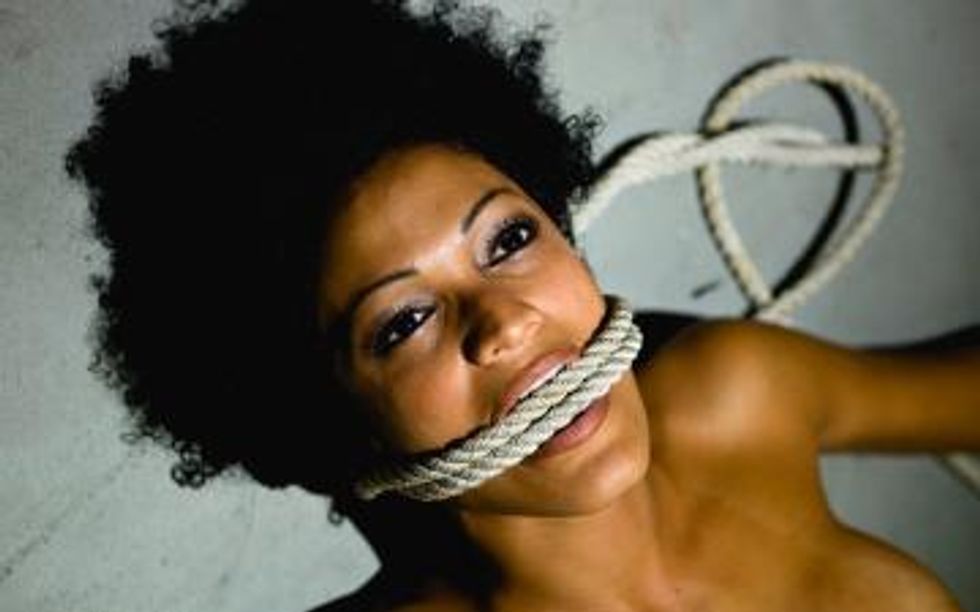This past week one of my favorite new R & B artists, Kehlani, has been reported to have attempted suicide. The news hurt me to my very core. What was even worse though was the immediate reaction of the black community on social media sites like Twitter, Tumblr, and Instagram. Almost immediately after hearing the news I saw hundreds of people referring to the situation as "attention seeking" and "not a real mental illness." The reaction to Kehlani was very much telling of the problems with how we understand and respond to mental illness in this country.
As a society overall, we do a horrendous job of responding to not just emotional, but physical manifestations of mental illness—even more so when black women are involved. Conversations surrounding mental illnesses like clinical depression that are often linked to self harm and sometimes suicide, are not spaces in which black women—black people in general—are given much consideration. Yet every 4.5 hours an African-American person dies because of suicide. This isn't surprising as the surgeon general warns that African-Americans are one of the most over-represented groups at risk for mental illness and yet, mental illness is so often misdiagnosed among them, as historically black women have been diagnosed less with depression and misdiagnosed disproportionately high with schizophrenia. There is an unsurprising distrust of health systems which is incredibly common within the black community due to a history of unsolicited testing on black women and experiments like that of the Tuskegee Syphilis Study where doctors willingly allowed black men to die due to untreated syphilis.
I'm sure most black people who do suffer from mental illness can agree that common messages heard about mental illness within their own communities is that "depression is for white people" or "if we can make through slavery, you can make it through this." The most effective way to make sure that someone with a mental illness never receives help and only understands mental health issues through a lens of shame and embarrassment is by silencing them when they ask for help, and with 63% of African-Americans truly believing that depression is a sign of personal weakness it's almost a sure sign that that help and support will never be offered.The constant invalidation of an actual illness in place of support is seen as an effective way to respond to these issues. The problems that arise seem to stem from the idea that mental illness is a sign of weakness, and black women are not allowed to be weak.
Outside of ignoring mental health issues, there is also a major issue within the black community of people being able to actually recognize symptoms of mental illness. With an identity that is understood as crafted through responses to oppression and overarching systems of white supremacy, being sad is a "common" condition of the black experience in this country. Prolonged sadness is labeled as "the blues" and a regular experience that can be overcome purely through sheer will or through the grace of God.
As a group black women are often seen as strong (read: strong independent black women) and able to bear the burdens of racism, sexism, cultural alienation, and especially high rates of violence. They are truly expected to be the mules of the world. This view, its monolithic view none withstanding, of black women is completely dehumanizing as it does not allow them the space to feel their real emotions nor express them and get help. And comments that devalue the very real pain that black women feel as a result of their mental illnesses does nothing more but make them feel small and selfish for putting their mental health before the needs of an entire community.
As a society, we have to learn to give black people to be space to be mentally ill. Within the black community, we need to destigmatize talking freely of going to a therapist and understand that acknowledging one's mental health is not a sign a weakness, but that there is strength in vulnerability. We need to stop allowing schools to apply the label of an "attitude problem" to young girls in schools rather than try to understand their experiences and how those could be affecting them. We need to stop putting black women at the forefront of our revolutions and then ignoring them when that space is harmful to their mental health. We need to stop expecting black women to just be "strong" and take all the abuse that is thrust onto them because it is their duty as black women. We need to begin to view black people, black women, as human beings.



















